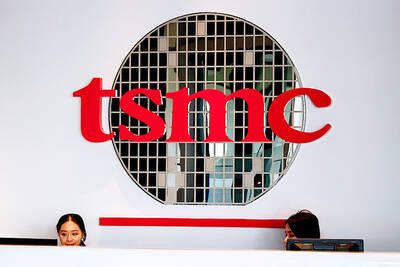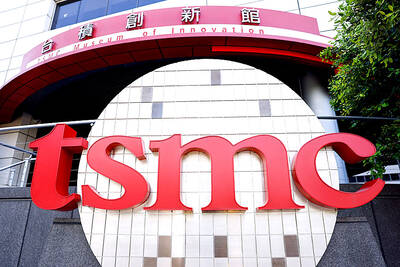A narrowing interest spread following the central bank’s latest rate cut is expected to affect the financial sector’s bottom line, analysts said.
After its quarterly policymaking meeting on Thursday, the central bank said it would lower its key interest rates by 0.125 percentage points, the first cut in four years.
“This move signals additional earnings headwinds for the financial sector, both banks and life insurers. But state banks are likely to be impacted more than private banks and insurers given higher CASA [current and savings account] ratios and dependence on net interest income,” JPMorgan Securities Ltd analysts Jemmy Huang (黃聖翔) and Josh Klaczek said in a research note.
A higher CASA ratio indicates that a higher portion of a bank’s deposits must come from current and savings deposits.
JPMorgan said state-run First Financial Holding Co (第一金控) and Mega Financial Holding Co (兆豐金控) would suffer more than their peers.
The current macroeconomic headwinds would cap the upside of financial firms’ earnings and share prices, the brokerage said.
“On the back of lackluster economic momentum, delays in US rate hikes and domestic rate cuts, we expect further consensus downward earnings revisions for the sector in the near future,” Huang and Klaczek said in the note.
Shares of financial firms moved lower in Taipei trading on Friday, with the financial sub-index closing down 1.15 percent, compared with the TAIEX’s 0.11 percent increase.
The decline was led by CTBC Financial Holding Co’s (中信金控) 3.06 percent drop and Cathay Financial Holding Co’s (國泰金控) 2.71 percent fall. Shares of E.Sun Financial Holding Co (玉山金控) lost 1.85 percent, Mega Financial fell 1.54 percent, Shin Kong Financial Holding Co (新光金控) dropped 1.38 percent and First Financial 0.99 percent.
KGI Securities Investment Advisory Co (凱基證券投顧) analysts said the rate cut would decrease the financial sector’s earnings by between 2.5 and 3 percent this year.
Banking-centric financial groups with larger mortgage and corporate loan portfolios denominated in New Taiwan dollars would face more pressure, KGI said.
With banks’ net interest margin (NIM) expected to contract by between 1.6 and 2.7 basis points this year, earnings are likely to shrink by 2.9 percent for Cathay Financial, 2.6 percent for First Financial and 2.6 percent for Fubon Financial Holding Co (富邦金控), KGI analysts Eric Shih (施志鴻) and Jean Chen (陳柏均) said.
KGI expects Mega Financial to take a 1.8 percent hit in earnings this year, and E.Sun Financial might see profits slide by 1.7 percent.
“But the central bank’s move will affect life insurance-centric financial groups more than their banking-centric peers,” Shih and Chen said in a note on Friday.
As the US Federal Reserve chose not to raise rates in its policy meeting earlier this month, Taiwanese central bank’s rate cut might boost Cathay Financial’s efforts to reduce its negative net interest spread and delay Fubon Financial’s bid to expand on its positive net interest spread, the analysts said.
“Life insurers will continue to face challenges of rising market volatility for their equity portfolios,” Shih and Chen said.
Yuanta Securities Investment Consulting Co (元大投顧) analyst Peggy Shih (施姵帆) said that the average savings rate would decrease by 6.25 basis points to 0.71 percent from 0.78 percent, pushing the loan rate toward 2.125 percent, while interest spread is expected to drop by 2 basis points to 1.41 percent from 1.43 percent.
Assuming that banks allocate 60 percent of interest-bearing assets to loans, 10 percent to interbank loans and 16 percent to fixed-income instruments, the average NIM is expected to decrease by 4 basis points in response to the rate cut, overall return on equity for local banks is likely to fall to 9.6 percent from 11.4 percent last year.
Yuanta expects this year’s earnings to drop by 2.3 percent for Cathay Financial, 0.5 percent for Fubon Financial, 1.6 percent for Shin Kong Financial and 0.9 percent for China Life Insurance Co (中國人壽).

Chizuko Kimura has become the first female sushi chef in the world to win a Michelin star, fulfilling a promise she made to her dying husband to continue his legacy. The 54-year-old Japanese chef regained the Michelin star her late husband, Shunei Kimura, won three years ago for their Sushi Shunei restaurant in Paris. For Shunei Kimura, the star was a dream come true. However, the joy was short-lived. He died from cancer just three months later in June 2022. He was 65. The following year, the restaurant in the heart of Montmartre lost its star rating. Chizuko Kimura insisted that the new star is still down

While China’s leaders use their economic and political might to fight US President Donald Trump’s trade war “to the end,” its army of social media soldiers are embarking on a more humorous campaign online. Trump’s tariff blitz has seen Washington and Beijing impose eye-watering duties on imports from the other, fanning a standoff between the economic superpowers that has sparked global recession fears and sent markets into a tailspin. Trump says his policy is a response to years of being “ripped off” by other countries and aims to bring manufacturing to the US, forcing companies to employ US workers. However, China’s online warriors

Taiwan Semiconductor Manufacturing Co (TSMC, 台積電) listed the challenges of ensuring export control compliance by its customers, months after the company’s artificial intelligence (AI) silicon was found to have flowed to US-sanctioned Huawei Technologies Co (華為) via intermediaries. “TSMC’s role in the semiconductor supply chain inherently limits its visibility and information available to it regarding the downstream use or user of final products that incorporate semiconductors manufactured by it,” the Hsinchu-based company said in its latest annual report released on Friday. The world’s largest contract chipmaker said the constraint impedes its ability to prevent unintended end-uses of its semiconductors, as well

Taiwan Semiconductor Manufacturing Co (TSMC, 台積電) expects steady growth this year despite global economic uncertainty due to continued momentum from tech trends such as 5G, artificial intelligence (AI) and high-performance computing (HPC) applications. In the company’s annual shareholders’ report released on Thursday, TSMC chairman and CEO C.C. Wei (魏哲家) said the company is well-positioned to meet market demand with its differentiated technology platforms. The company’s 2-nanometer process is on track for volume production in the second half of this year, while its next-generation nanosheet-based A16 process, aimed at HPC applications, is scheduled for mass production late next year, Wei said. Advanced technologies —